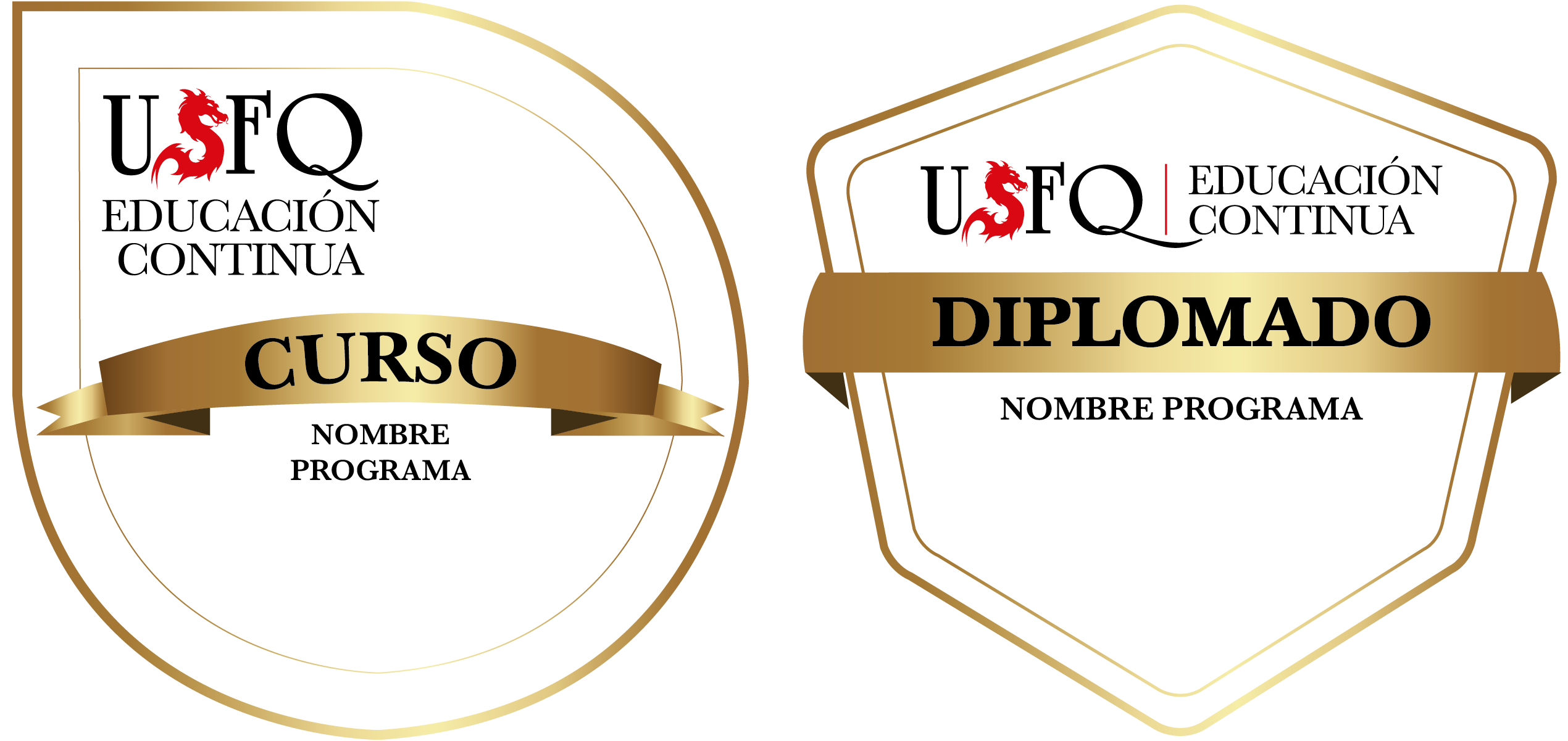Artificial Intelligence for Communicators: Strategies and Workflow in the Digital World
Fechas
Registro
Through this program, students will learn to utilize cutting-edge tools to generate creative content, optimize their presence on social media, and design effective content creation strategies. With a focus on prompt engineering, digital narratives, and ethics, this course prepares them to excel in a competitive market while confidently and responsibly addressing real-world challenges. Ideal for both established professionals and enthusiastic beginners, this experience will elevate participants to the next level in digital communication supported by artificial intelligence. This course arises in response to the imminent demand for professionals capable of effectively integrating AI into digital communication strategies. Primarily in a global context where technology and creativity are converging, this course has been designed to provide the skills and knowledge needed to fully leverage the potential of AI through content creation and innovation, as well as in optimizing online presence and copywriting. With a focus on ethics and best practices, this course prepares participants to lead in an ever-evolving digital environment and tackle challenges with confidence and responsibility.
Alignment with the SDGs:
The program is designed and directly aligned with the following SDGs:
- SDG 4: Quality Education
- SDG 8: Decent Work and Economic Growth
- SDG 9: Industry, Innovation, and Infrastructure
- SDG 17: Partnerships for the Goals
Online
60 academic hours over 8 weeks
Tuesdays and Thursdays: 18:30-20:30
Saturday: 10:00-12:00
General Public Rate: $600
Early Payment Rate: $550 (April 19)
Group Rate (3 pax): $550
USFQ Community Rate: $560
General Description
General Objective
To train participants in the effective integration process of principles, tools, and practices of Artificial Intelligence in digital communication and its various applications, through a mainly practical methodology, to convey the necessary knowledge that allows the student to establish effective communication with AI and generate creative, innovative, and strategic responses, with an ethical focus, respecting the legal regulations associated with the use of AI.
- Develop in participants a general understanding of the fundamentals of Artificial Intelligence.
- Train students in the effective use of AI generative tools and prompt engineering techniques to enhance creativity and effectiveness in digital communication.
- Train participants in the creation and optimal management of content for social networks using AI based on an effective strategy grounded in a narrative context.
- Promote a solid ethical and legal understanding of the implications of AI in digital communication and content creation.
Target Audience
The program is aimed at:
Professionals in digital communication, digital marketing, social media, advertising, journalism, design, and any enthusiast interested in learning about the effective application of AI in digital communication.
Graduate Profile
- Graduates will be professionals trained to integrate, in a practical and effective manner, the main prompting techniques in some of the various Artificial Intelligence tools to creatively and innovatively develop strategies for digital communication, as well as to address the ethical and legal challenges associated with their use.
Learning Outcomes
| # | Learning Outcomes | Level |
|---|---|---|
| 1 | Integrate fundamental concepts of AI in digital communication. | Intermediate |
| 2 | Design creative and innovative digital content, using effective prompting techniques when managing generative tools. | High |
| 3 | Formulate a narrative context in the development of effective strategies for digital content creation and social media management using AI. | High |
| 4 | Implement best ethical and legal practices in the use of AI in digital communication. | Intermediate |
Content
MODULE I. Fundamentals of Artificial Intelligence
Academic Lead / Instructor: Roberto Valarezo
Duration: 5 hours
Learning Objective: To develop in participants a general understanding of the fundamentals of Artificial Intelligence.
Module Content:
- Understanding the peculiarities of Artificial Intelligence and debunking its myths.
- Basic principles of AI: machine learning, deep learning, neural networks, natural language processing, Approximate Reasoning.
- Introduction to libraries and tools used in Artificial Intelligence.
- Case studies: AI in content personalization and other applications.
MODULE II. Prompt Engineering
Academic Lead / Instructor: Diego Latorre
Duration: 14 hours
Learning Objective: To train students in the effective use of AI generative tools and prompt engineering techniques to enhance creativity and effectiveness in digital communication.
Module Content:
- Understanding an LLM: CHATGPT – GEMINI - COPILOT
- Syntax principles of a prompt
- Incidents and contrast of hallucinations
- Basic prompting techniques
- Common errors when drafting prompts
- Problem-solving
- Advanced prompting techniques
- Chatbot personalization
- Basic Generative tools
- Case studies: Prompting for creative applications.
- Prompt hacking
MODULE III. Digital Narratives in the Era of Artificial Intelligence
Academic Lead / Instructor: Gabriela Astudillo
Duration: 9 hours
Learning Objective: To train participants in the creation and optimal management of content for social networks using AI based on an effective strategy grounded in a narrative context.
Module Content:
- Analysis of the current context of AI and its interaction with the Internet, as well as its influence on contemporary culture and society.
- Evolution of digital narratives within the framework of AI highlighting its development and transformation.
- Uses of AI in storytelling: profile prediction, content scanning, and user perception.
- Data Storytelling as Data Narrative in the Data Era to transform complex data into understandable and visually appealing stories that inform, persuade, and prompt action.
- Evaluation of the effect that digital narratives have on the audience and their level of engagement.
- Development of effective methods to integrate storytelling in various digital formats, including texts, images, and videos.
- Case studies: to develop skills in building digital narratives that leverage AI capabilities.
MODULE IV. Content Strategy Management Created with AI
Academic Lead / Instructor: Samantha Villacrés
Duration: 15 hours
Learning Objective: To train participants in the creation and optimal management of content for social networks using AI based on an effective strategy grounded in a narrative context.
Module Content:
- Overview of advanced AI generative tools applied to multimedia digital communication strategy. This includes:
- Control in AI image generation: Generative prompting techniques and recommendations to take advantage of the advanced features of tools such as Dall E and Midjourney.
- Correction and enhancement of AI photographs: Exploration of practical AI functions for time optimization in visual enhancement and intelligent editing of photos. Among which some processes stand out such as: upscaling, creative enhancing, Bg removing, watermark removing, among others.
- Enhancement and generation of AI video: Practical application of communication capabilities in video of Heygen, mainly for avatar creation, language translation, and video editing. While with Runway ML the full creative potential of this tool capable of generating videos from text, animating images, erasing elements, among others, will be unleashed.
- AI audio generation: Natural voice generation from text with Eleven labs and fun music creation on any topic with Suno.
- Automated content creation management: Practical workflow driven by artificial intelligence applications for efficient content SEO strategy management. This includes the planning, creation, automated management of publications process using tools such as Microsoft Designer, Canva, among others.
- AI copywriting support: Managing the copywriting process combining a personal creative approach with the potential of AI to achieve impactful and effective messages. Thus refining every aspect of the advertising strategy without losing connection with the audience.
- Use of Artificial Intelligence in the workflow of a marketing agency. Potentials, risks, and challenges.
MODULE V. Ethics and Laws Associated with AI in Digital Communication
Academic Lead / Instructor: Mauricio Martínez
Duration: 5 hours
Learning Objective: To promote a solid ethical and legal understanding of the implications of AI in digital communication and content creation.
Module Content:
- Ethical principles in the use of AI in communication and content creation.
- Risk management associated with AI handling
- Relevant legislation and regulations.
- Case studies.
- Discussion of ethical dilemmas related to AI.
Instructors

Roberto Valarezo, Ma.
- Master's in Artificial Intelligence.
- Master's in Digital Graphic Design.
- Master's in Systems Management and ICTs.
- ICT Coordinator at the Water Regulation and Control Agency (ARCA).
- ICT Director of the Galapagos Government Council.
- ICT Director, National Communication Secretariat.

Diego Latorre, Ma.
- Master's in Digital Graphic Design
- Master's in 2D Animation and Illustration
- Professional with a broad portfolio in audiovisual communication projects.
- Winner of the NOBIS Creativity Award 2006
- Professor at USFQ with extensive experience
- Additional training in information management with AI.

Gabriela Astudillo, Mg.
- Systems Analyst
- Engineer in Corporate Graphic Design and Audiovisual Communication
- Master's in Business Administration and Management
- Professional with experience in audiovisual communication projects.
- Social-Web & CEO at Sabana Kreativos Agency. University lecturer, speaker, and presenter with extensive national and international experience.
- Trainer, mentor, and advisor in digital marketing and new technologies for startups and companies.

Samantha Villacrés, Ma.
- Postgraduate in Generative Artificial Intelligence for Content Creators, IEBS Business School.
- Master's in Digital Content Strategy for Brands, SHIFTA ELISAVA.
- Diploma in Digital Communication and Social Media.
- Communication and Promotion Manager at Adelca.
- Social Media Manager at Be Flamingo Agency.
- Bachelor's Degree in Journalism.
- Notable experience in creating content strategies for B2C and B2B brands.

Mauricio Martínez, Mg.
- Lawyer admitted to the Courts and Tribunals of the Republic of Ecuador
- Master's in International Litigation and Arbitration
- Certification in Legaltech Program and Data Protection
- Advanced Specialization in Business Law
- Former Legal Director at QBE Seguros Colonial S.A
- Partner at Legal Dret Global Abogados
Schedule
| Month | Day | Session | Time | Module | Topics | Instructor | |
|---|---|---|---|---|---|---|---|
| June | 4 | Tuesday | 2 | 6:30 PM to 8:30 PM | Module 1 | Peculiarities of Artificial Intelligence and its myths. Basic principles of Artificial Intelligence. |
Roberto Valarezo |
| 6 | Thursday | 2 | 6:30 PM to 8:30 PM | Module 1 | Introduction to libraries and tools used in Artificial Intelligence | Roberto Valarezo | |
| 8 | Saturday | 1 | 10:00 AM to 11:00 AM | Module 1 | Case studies: AI in content personalization and other applications. | Roberto Valarezo | |
| 1 | 11:00 AM to 12:00 PM | Module 2 | Understanding an LLM | Diego Latorre | |||
| 11 | Tuesday | 2 | 6:30 PM to 8:30 PM | Module 2 | Principles of prompt syntax. Incidences and contrast of hallucinations. Basic prompting techniques. |
Diego Latorre | |
| 13 | Thursday | 2 | 6:30 PM to 8:30 PM | Module 2 | Common mistakes in writing prompts. Problem solving. |
Diego Latorre | |
| 15 | Saturday | 2 | 10:00 AM to 12:00 PM | Module 2 | Advanced prompting techniques. | Diego Latorre | |
| 18 | Tuesday | 2 | 6:30 PM to 8:30 PM | Module 2 | Chatbot customization. | Diego Latorre | |
| 20 | Thursday | 2 | 6:30 PM to 8:30 PM | Module 2 | Basic Generative Tools. | Diego Latorre | |
| 22 | Saturday | 2 | 10:00 AM to 12:00 PM | Module 2 | Case studies: Prompting for creative applications. | Diego Latorre | |
| 25 | Tuesday | 1 | 6:30 PM to 7:30 PM | Module 2 | Prompt hacking. | Diego Latorre | |
| 1 | 7:30 PM to 8:30 PM | Module 3 | Analysis of the current context of AI and its interaction with the internet, as well as its influence on contemporary culture and society. | Gabriela Astudillo | |||
| 27 | Thursday | 2 | 6:30 PM to 8:30 PM | Module 3 | Evolution of digital narratives within the framework of AI. Uses of AI in storytelling: profile prediction, content scanning, and user perception. |
Gabriela Astudillo | |
| 29 | Saturday | 2 | 10:00 AM to 12:00 PM | Module 3 | Data Storytelling as Narrative in the Age of Data. Evaluation of the effect that digital narratives exert on the audience and their level of engagement. |
Gabriela Astudillo | |
| July | 2 | Tuesday | 2 | 6:30 PM to 8:30 PM | Module 3 | Development of effective methods for integrating storytelling in various digital formats, including texts, images, and videos. | Gabriela Astudillo |
| 4 | Thursday | 2 | 6:30 PM to 8:30 PM | Module 3 | Case studies: to develop skills in building digital narratives that leverage AI capabilities. | Gabriela Astudillo | |
| 6 | Saturday | 2 | 10:00 AM to 12:00 PM | Module 4 | Control in the generation of images: AI - Dall E and Midjourney | Samantha Villacrés | |
| 9 | Tuesday | 2 | 6:30 PM to 8:30 PM | Module 4 | AI enhancement and correction of photographs | Samantha Villacrés | |
| 11 | Thursday | 2 | 6:30 PM to 8:30 PM | Module 4 | AI enhancement and generation of video - Eleven Labs | Samantha Villacrés | |
| 13 | Saturday | 2 | 10:00 AM to 12:00 PM | Module 4 | AI enhancement and generation of video - Runway | Samantha Villacrés | |
| 16 | Tuesday | 2 | 6:30 PM to 8:30 PM | Module 4 | AI generation of audio | Samantha Villacrés | |
| 18 | Thursday | 2 | 6:30 PM to 8:30 PM | Module 4 | Automated management for content creation | Samantha Villacrés | |
| 20 | Saturday | 2 | 10:00 AM to 12:00 PM | Module 4 | IA support for advertising writing | Samantha Villacrés | |
| 23 | Tuesday | 1 | 6:30 PM to 7:30 PM | Module 4 | Use of Artificial Intelligence in the workflow of a marketing agency. Potentialities, risks, and challenges. | Samantha Villacrés | |
| 1 | 7:30 PM to 8:30 PM | Module 5 | Ethical principles in the use of AI in communication and content creation. | Mauricio Martínez | |||
| 25 | Thursday | 2 | 6:30 PM to 8:30 PM | Module 5 | Risk management associated with AI handling. Relevant legislation and regulations. |
Mauricio Martínez | |
| 27 | Saturday | 2 | 10:00 AM to 12:00 PM | Module 5 | Case studies. Discussion of ethical dilemmas related to AI. |
Mauricio Martínez | |
Parameters for Issuing Certificates
Evaluation Mechanism
| Category | Description | Percentage of Final Grade |
|---|---|---|
| Module 1 Fundamentals of Artificial Intelligence | Quiz (10 points) | 5% |
| Module 2 Prompt Engineering | Quiz (10 points): Project: Creation of a customized chatbot |
5% 20% |
| Module 3 Digital Narratives in the Age of Artificial Intelligence | Quiz (10 points) Assignment (10 points): AI Storytelling |
5% 10% |
| Module 4 Management of the Strategy for AI-created Content | Quiz (10 points) Integrative Project: Professional application of AI tools. |
5% 25% |
| Module 5 Ethics and Laws Associated with AI in Digital Communication | Quiz (10 points) | 5% |
| Zoom Sessions (attendance and participation) | 48 sessions. Students must attend at least 80% of the sessions. | 20% |
Certificate of Approval
At the end of the course, participants must meet a minimum of 80% total attendance and pass the grading components with a minimum of 80%.
Upon meeting these requirements, the Universidad San Francisco de Quito will grant a certificate for the number of academic hours completed.
The Universidad San Francisco de Quito will award a digital badge of the academic achievements earned as a participant. This badge is a digital version of the academic certificate which can be shared online more efficiently and serves as a reliable method to verify certification in real time.

Registration
General Public Rate: $600
Early Payment Rate: $550 (April 19)
Group Rate (3 pax): $550
USFQ Community Rate: $560
The payment for the program can be made through the following methods:
STEP 1: Make the Payment
Bank Transfer or Counter Payment
Account Information:
In the name of Universidad San Francisco de Quito
Banco Bolivariano
Checking Account No. 5075003350
(RUC: 1791836154001)In the name of Universidad San Francisco de Quito
Banco Pichincha
Checking Account No. 3407330004
(RUC: 1791836154001)
Credit Card
Click on the following PAY HERE and complete the information requested by the form. Upon completion, you will be automatically registered in the system.
With credit cards from Banco de Pichincha, Banco Bolivariano, Produbanco, Banco de Guayaquil, and Banco del Austro, you can access the following financing: 3, 6, 9, and 12 months, with and without interest.
STEP 2: Confirm Your Payment
If you made the payment by Transfer or Deposit, please send a copy of the deposit slip (scanned) and your personal details (full name, ID number, phone, and address) to the following email: rordonez@usfq.edu.ec
* If you require an invoice with different details than those of the participant, specify in the email the following information (company name, tax ID/ID number, phone, address, and email).
If you made the payment with Credit Card, there is no need to confirm your payment, as the system will automatically register your details.
STEP 3: Registration Confirmation
You will receive an email confirming your registration, with relevant information about the course.
* The program coordination reserves the right to suspend or reschedule the activity if the minimum required number of students is not met or due to force majeure. In such cases, the full amount paid will be refunded to enrolled students as soon as possible.

